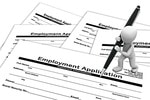The idea of leaving a steady job of any kind can be overwhelming. But, many people consider it for a variety of reasons. Maybe you feel as though you’re not getting a fair wage. Maybe the environment is toxic. Maybe you like the work itself, but not your employer.
Still, many people stay in their jobs even if they are unhappy with the work because they need the money. Having a job you’re not happy with but you feel forced to stay in can feel debilitating and hopeless. But, leaving your job without another one lined up is a risky business.
It’s important to know when to leave your job. It’s not always enough to call it quits just because you’re unhappy. Determining the reason you’re unhappy at work might be able to help you figure out changes you can make to create a better experience.
Job markets fluctuate constantly. If you quit your career to pursue something new without an official position in place, you could be waiting for quite some time to gain solid employment again.
Is It a Good Idea to Quit My Job?
This article will cover two major topics: When to quit your job (even without a new one lined up), and a few things you should consider before leaving for good. In some cases, leaving your career may be the best move even if you’re unsure of what to do next.
Other times, even if you’re not feeling fulfilled at work, sticking it out may be the best option. Having a better understanding of some of the best reasons to quit can help you determine your next move.
Why You Should Consider Staying
One of the biggest reasons people leave their jobs is because it’s easy to run away from what we think we don’t like. Or, we constantly think there is something better out there. Unfortunately, running away from something because it’s hard or we don’t like it isn’t always the answer.
If you keep running away from careers, you’ll never have a chance to address which obstacles affect you the most. You’ll also never be able to overcome those obstacles because you’re choosing ‘flight’ instead of ‘fight.’
You should also consider staying in your job if you haven’t pinpointed a specific reason why you want to leave. It’s easy to say you don’t like your work environment, but what about it don’t you like? Is it a particular person? A set of rules? If you like the actual work you do on a daily basis, there are probably things you can do or adjustments that can be made to your environment to make it better.
One of the biggest risk factors to think about before you quit is how it might affect your lifestyle. Whether you live alone or have a family to care for, a sudden lack of a paycheck can make a big difference in the way you live. Bills and responsibilities don’t stop suddenly. If you know that you need that paycheck to continue living comfortably, it’s probably a better idea to wait until you have another job in the works.

Reasons to Quit Without Having Another Job Lined Up
Just as there are considerations that need to be made about staying in your job, there are reasons to consider for quitting. There are simply some things that you shouldn’t have to deal with for too long. Sometimes, a career simply doesn’t work out. It’s better to ‘get out’ quickly rather than drag yourself down into years of feeling unsatisfied and unfulfilled.
Let’s take a look at a few of the best reasons you should quit your job before having a new one:
- Your health should be the number one consideration when thinking about your next career move. If your job is making you sick, physically or emotionally, you need to move on. Many jobs cause stress from time to time. But, if that stress is starting to affect your overall mental health, it’s not okay to stick around for things to get worse. Here are some medical jobs that aren’t as stressful. It can also be difficult to feel motivated to look for another job if your current one is affecting your mental state. If you can get out while you’re healthy and find other employment, you should do it! Otherwise, you may find yourself waiting to feel normal again before starting another job hunt.
- Health and safety often go hand-in-hand. When it comes to your workplace, though, they can be two separate entities. If your safety is ever in question, you don’t need to consider staying in that particular job for another second. We don’t often assume our workplaces are dangerous. But, they can be just as dangerous as anywhere else. Sexual harassment, for example, shouldn’t be tolerated at all. If you feel threatened or harassed at work, take the right steps in talking to your human resources department about it. If the problem continues, you need to get out of the unsafe situation as soon as possible.
- The rest of your life outside your job should be considered if you’re thinking about leaving. How does your current career affect your life? Do you find yourself thinking about work even when you’re not at work? Are you stressed about something that happened at the office so much that it’s affecting your relationships or your ‘me’ time? Sometimes, we can’t move forward and accomplish life goals because we’re so wrapped up in our jobs. If you have a job that is that consuming, you may want to consider looking elsewhere.
- If your company is starting to look like a sinking ship, it may be time to ‘abandon’ it before it fully submerges. It’s better to take control of your job situation and have the ability to start looking for other employment than to be blindsided by a business that shuts down suddenly. If things seem to be a little off with your company, look for some telltale signs. Maybe managers are having secret meetings, you’ve heard rumors of bankruptcy, employees are looking scared, etc. It may be smart to get out before you’re forced out.
- It’s never a good idea to become stagnant at work. If you feel your current job either isn’t challenging you or doesn’t have the opportunities you look for, it’s okay to move on. If you’re seeking a challenge, there’s a good chance you’ll have something lined up quickly. Wanting to experience growth is never a bad thing! Perhaps you’re interested in getting the training to become a phlebotomist?
What Are Some Safe Alternatives?
If you can start a job search quietly while you’re still working, that’s a smart solution. You may not have something lined up before you quit, but at least you’ll have a head start. The best thing to do if you’re considering a change of career is to be as prepared as possible.
[su_list icon=”icon: check-circle”]
Some options might include:
- Lining up part-time work before quitting
- Taking a temp job immediately after quitting, before finding your next permanent place
- Saving up enough money ahead of time to live comfortably for several weeks
- Doing side jobs for relatives or friends to get by until you have a new job
[/su_list]
You could consider these alternatives to bridge between leaving your job suddenly and having a new one lined up. You’ll likely feel a lot better about yourself and your situation if you keep these bridges in mind and try to put some of them into place.
They aren’t permanent solutions. However, they can give you some breathing room until you start down a new career path. Not only will that help to lower your stress levels, but you’ll know you can continue to live comfortably and take care of your family until something better comes along.
Finding Fulfillment in Quitting Your Job
Determining why you want to leave your job in the first place should be the first thing you look at before making a change. If you can power through things, be brave, and empower yourself, you might eventually find satisfaction in your current career. If you keep running away from jobs because they may not be exactly what you want, you’ll likely keep running. This could carry over into other aspects of your life, too.
As listed above, there are important factors to consider when you want to leave. Never compromise your health or safety for the sake of a job. Even if there are risks in leaving, these two things are more important than a paycheck.
Leaving a job for any reason will always be risky if you don’t have something else in the works. Ultimately, you know how your current situation is affecting you better than anyone else. Weighing out the pros and cons is a great place to start, but be sure to give each factor the proper ‘weight’ it deserves. Some may carry more than others, and that needs to be taken into consideration. You can re-train for a new job in under a year.






